高中英语必修一模块1 Unit 1 Lifestyles lesson4 reading课件 (共24张PPT)
文档属性
| 名称 | 高中英语必修一模块1 Unit 1 Lifestyles lesson4 reading课件 (共24张PPT) |  | |
| 格式 | zip | ||
| 文件大小 | 3.5MB | ||
| 资源类型 | 教案 | ||
| 版本资源 | 北师大版 | ||
| 科目 | 英语 | ||
| 更新时间 | 2018-11-24 16:44:22 | ||
图片预览

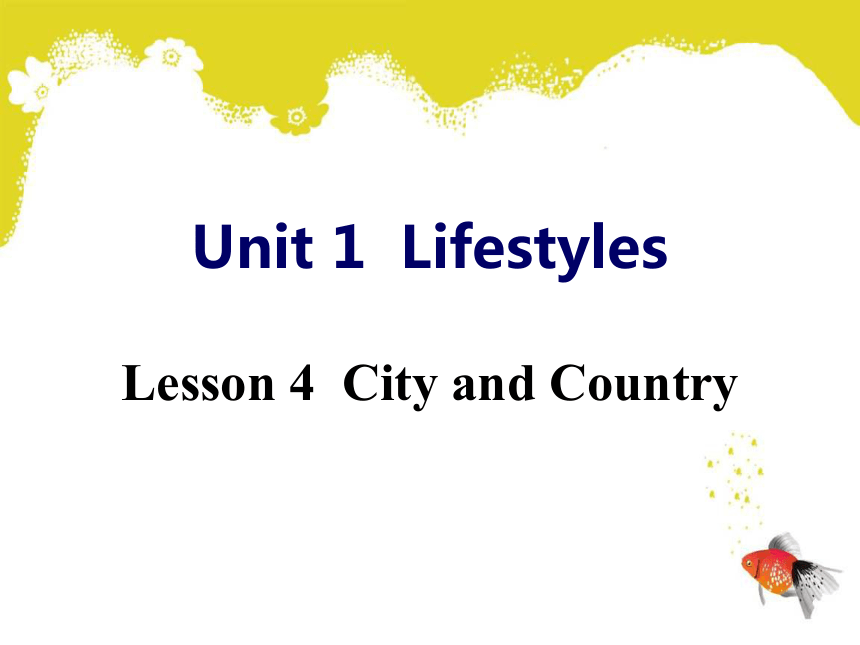
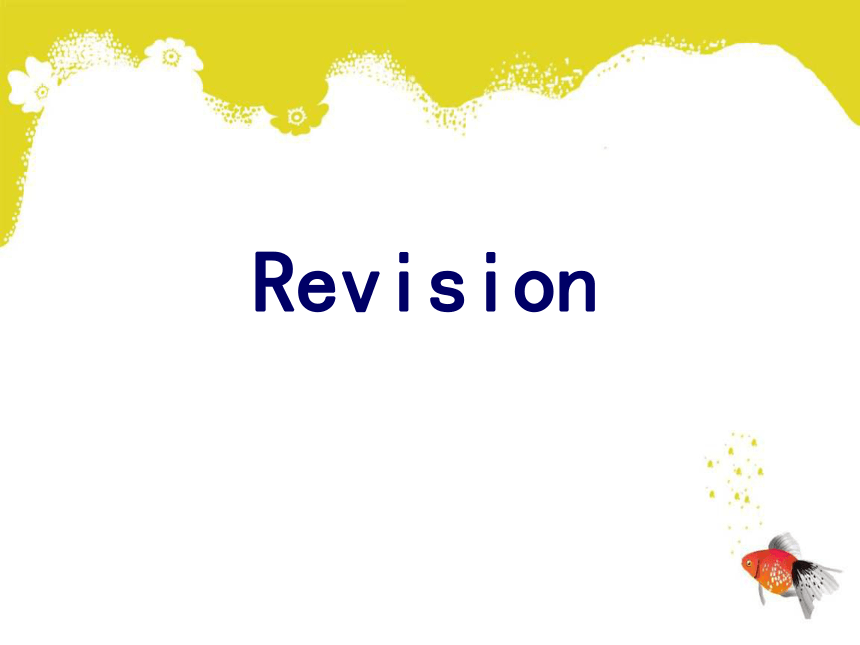
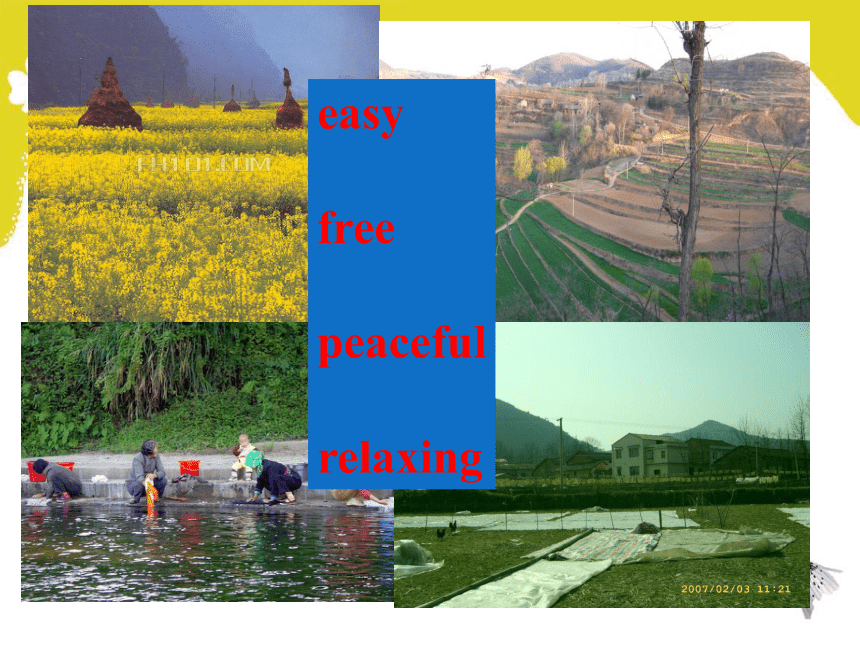
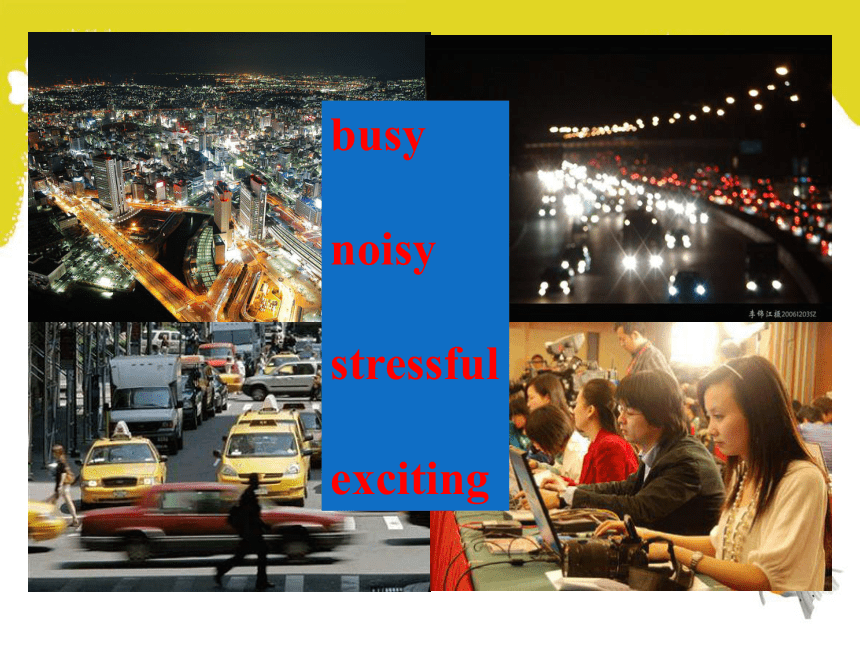
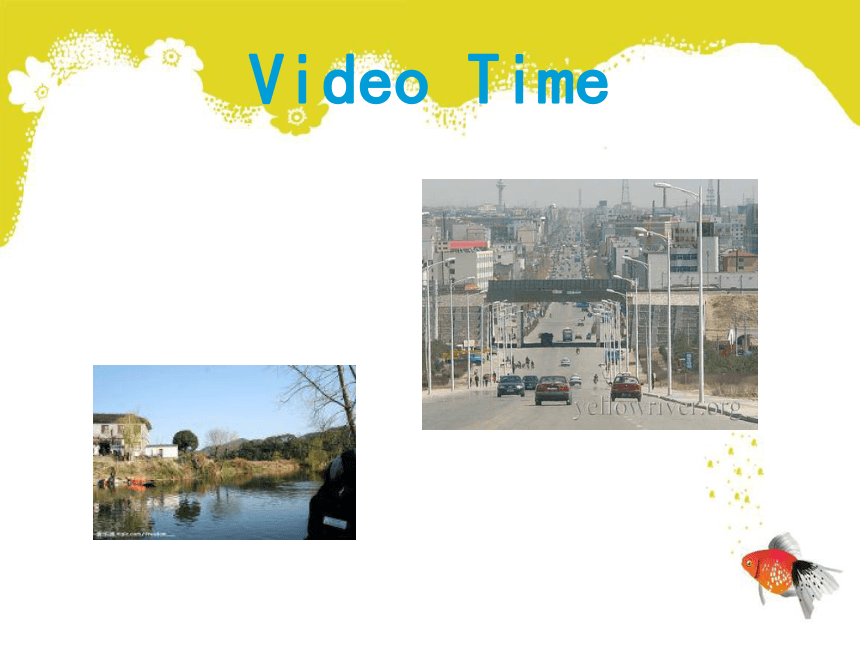
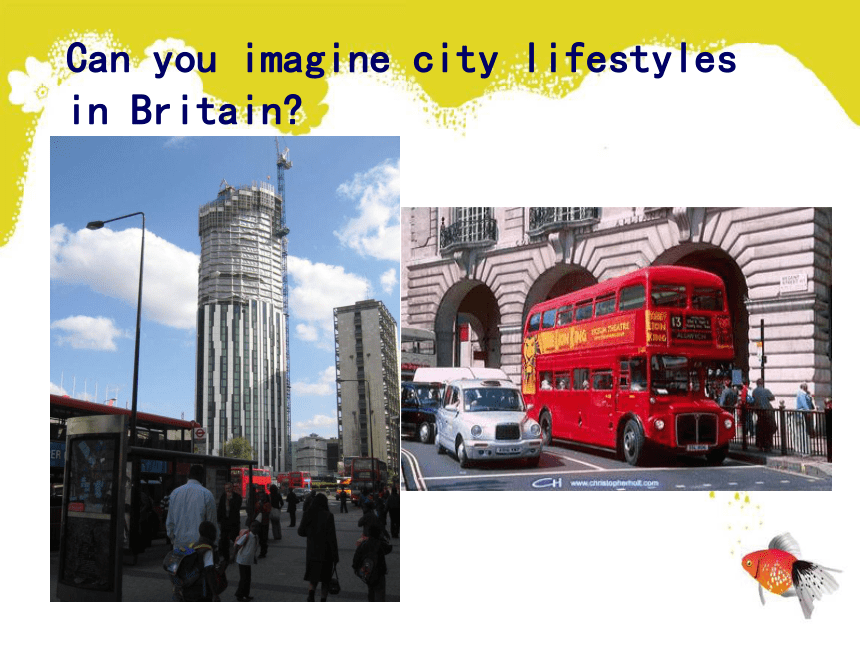
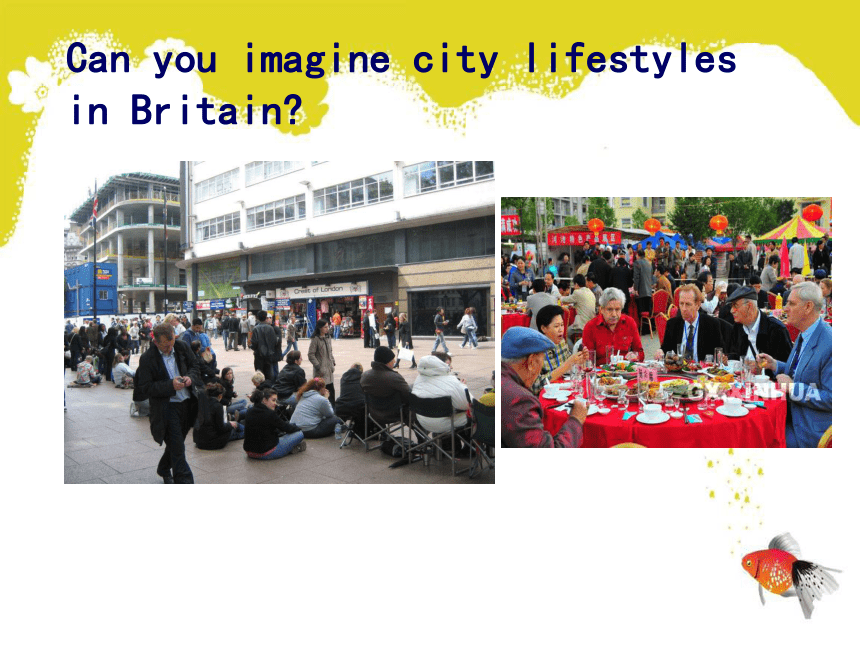

文档简介
课件24张PPT。Welcome!
Unit 1 Lifestyles
Lesson 4 City and CountryRevisioneasy
free
peaceful
relaxingbusy
noisy
stressful
excitingVideo TimeCan you imagine city lifestyles in Britain?Can you imagine city lifestyles in Britain?Can you imagine country lifestyles in Britain?Can you imagine country lifestyles in Britain?Can you imagine country lifestyles in Britain?Can you imagine country lifestyles in Britain?Read and fill in the table with information about Debbie and Paul’s lives.7A big city A small village4an accountantgo to the cinema, drive to the country and go walking theredance classes, go to the gym, French classescenter of Londonall daynorth of Englandplay with his children; study by distance learninga farmergo to London for a weekend break8Listen to the tape,find out more details and choose the best answers.1. From Passage 1, we can know that ___.
A. Debbie has to get up very early but
Paul doesn’t have to
B. Debbie goes to work by car every day
C. Paul has to travel far away to work
every day
D. Debbie is rather tired of the
underground D2. The main idea of Passage 2 is that ___.
A. Paul lives in the north of England
B. it is easy for Paul to go to work
C. Paul’s life is very free
D. Paul’s busy but he has no stress of life
3. In the last paragraph of Passage 2, we can
infer that ___.
A. Paul’s wife does not like movies
B. Paul’s children like going on the underground
C. the life of Paul is very convenient
D. Paul often goes to see the film DB4. Whose life is better, Debbie’s or Paul’s? _____
A. Debbie’s. B. Paul’s. C. Both.
D. Different people have different ideas.
5. Which o f the following is NOT true according
to the passages? ______
A. Debbie has to spend all morning checking
numbers every day on workweeks.
B. Debbie likes to go to the countryside to have
a weekend break sometimes.
C. Paul’s work is freer than Debbie’s.
D. Both Debbie and Paul see a lot of movies.DC1. It takes me 30 minutes to go back home.
我要花30分钟回家。
It takes (sb.) some time (to do sth. )
“做某事花费某人多少时间”
e.g. 1. 他需要3个小时的时间完成他的工作。
It will take him three hours to finish his work.
2. 建成那条铁路花费了2,000多人3年的时间。
It took more than 2,000 people three years to
build that railway.
Language points 2. “如此……以至于”
so + adj./adv. + that clause
such + n. + that clause
so + adj. + a/an + 单数n. + that clause
(= such +a/an + adj. + 单数n. + that clause)
Lucy 是一个很可爱的女孩,我们都喜欢她。
Lucy is so lovely that we all like her.
Lucy is such a lovely girl that we all like her.
Lucy is so lovely a girl that we all like her.
3. interested adj. 感兴趣的(主语常人)
interesting adj. 有趣的(主语常为物)
这是一本有趣的书,我对它很感兴趣。
This book is very interesting and I am very interested in it.
excited a. 感到兴奋的(主语常为人)
exciting a. 令人兴奋的(主语常为物)
surprised a. 感到吃惊的(主语常为人)
surprising a. 惊人的(主语常为物)
moved a. 感动的(主语常为人)
moving a. 令人感动的(主语常为物)
tired/tiring, bored/boring, satisfied/satisfying, etc.4. get / have the chance to do sth.
“获得/有做某事的机会”
e.g. 1. Jane has got the chance to do this project.
简得到了做这个项目的机会。
2. 你是一直有改过自新的机会的。
You have had every chance to reform.
3. 我们没有见面的机会了。
We have no chance to meet each other. Speaking and DiscussionTalk with each other about your dream lifesyles. Discuss in groups of four to prepare group reports.Homework1. Review the language points we have just learned, and do exercises in your workbooks.
2. Read the texts again and have a try to retell them, describing Debbie’s and Paul’s life.
3. Write a composition about your dream lifestyles.Thank you !
Unit 1 Lifestyles
Lesson 4 City and CountryRevisioneasy
free
peaceful
relaxingbusy
noisy
stressful
excitingVideo TimeCan you imagine city lifestyles in Britain?Can you imagine city lifestyles in Britain?Can you imagine country lifestyles in Britain?Can you imagine country lifestyles in Britain?Can you imagine country lifestyles in Britain?Can you imagine country lifestyles in Britain?Read and fill in the table with information about Debbie and Paul’s lives.7A big city A small village4an accountantgo to the cinema, drive to the country and go walking theredance classes, go to the gym, French classescenter of Londonall daynorth of Englandplay with his children; study by distance learninga farmergo to London for a weekend break8Listen to the tape,find out more details and choose the best answers.1. From Passage 1, we can know that ___.
A. Debbie has to get up very early but
Paul doesn’t have to
B. Debbie goes to work by car every day
C. Paul has to travel far away to work
every day
D. Debbie is rather tired of the
underground D2. The main idea of Passage 2 is that ___.
A. Paul lives in the north of England
B. it is easy for Paul to go to work
C. Paul’s life is very free
D. Paul’s busy but he has no stress of life
3. In the last paragraph of Passage 2, we can
infer that ___.
A. Paul’s wife does not like movies
B. Paul’s children like going on the underground
C. the life of Paul is very convenient
D. Paul often goes to see the film DB4. Whose life is better, Debbie’s or Paul’s? _____
A. Debbie’s. B. Paul’s. C. Both.
D. Different people have different ideas.
5. Which o f the following is NOT true according
to the passages? ______
A. Debbie has to spend all morning checking
numbers every day on workweeks.
B. Debbie likes to go to the countryside to have
a weekend break sometimes.
C. Paul’s work is freer than Debbie’s.
D. Both Debbie and Paul see a lot of movies.DC1. It takes me 30 minutes to go back home.
我要花30分钟回家。
It takes (sb.) some time (to do sth. )
“做某事花费某人多少时间”
e.g. 1. 他需要3个小时的时间完成他的工作。
It will take him three hours to finish his work.
2. 建成那条铁路花费了2,000多人3年的时间。
It took more than 2,000 people three years to
build that railway.
Language points 2. “如此……以至于”
so + adj./adv. + that clause
such + n. + that clause
so + adj. + a/an + 单数n. + that clause
(= such +a/an + adj. + 单数n. + that clause)
Lucy 是一个很可爱的女孩,我们都喜欢她。
Lucy is so lovely that we all like her.
Lucy is such a lovely girl that we all like her.
Lucy is so lovely a girl that we all like her.
3. interested adj. 感兴趣的(主语常人)
interesting adj. 有趣的(主语常为物)
这是一本有趣的书,我对它很感兴趣。
This book is very interesting and I am very interested in it.
excited a. 感到兴奋的(主语常为人)
exciting a. 令人兴奋的(主语常为物)
surprised a. 感到吃惊的(主语常为人)
surprising a. 惊人的(主语常为物)
moved a. 感动的(主语常为人)
moving a. 令人感动的(主语常为物)
tired/tiring, bored/boring, satisfied/satisfying, etc.4. get / have the chance to do sth.
“获得/有做某事的机会”
e.g. 1. Jane has got the chance to do this project.
简得到了做这个项目的机会。
2. 你是一直有改过自新的机会的。
You have had every chance to reform.
3. 我们没有见面的机会了。
We have no chance to meet each other. Speaking and DiscussionTalk with each other about your dream lifesyles. Discuss in groups of four to prepare group reports.Homework1. Review the language points we have just learned, and do exercises in your workbooks.
2. Read the texts again and have a try to retell them, describing Debbie’s and Paul’s life.
3. Write a composition about your dream lifestyles.Thank you !
